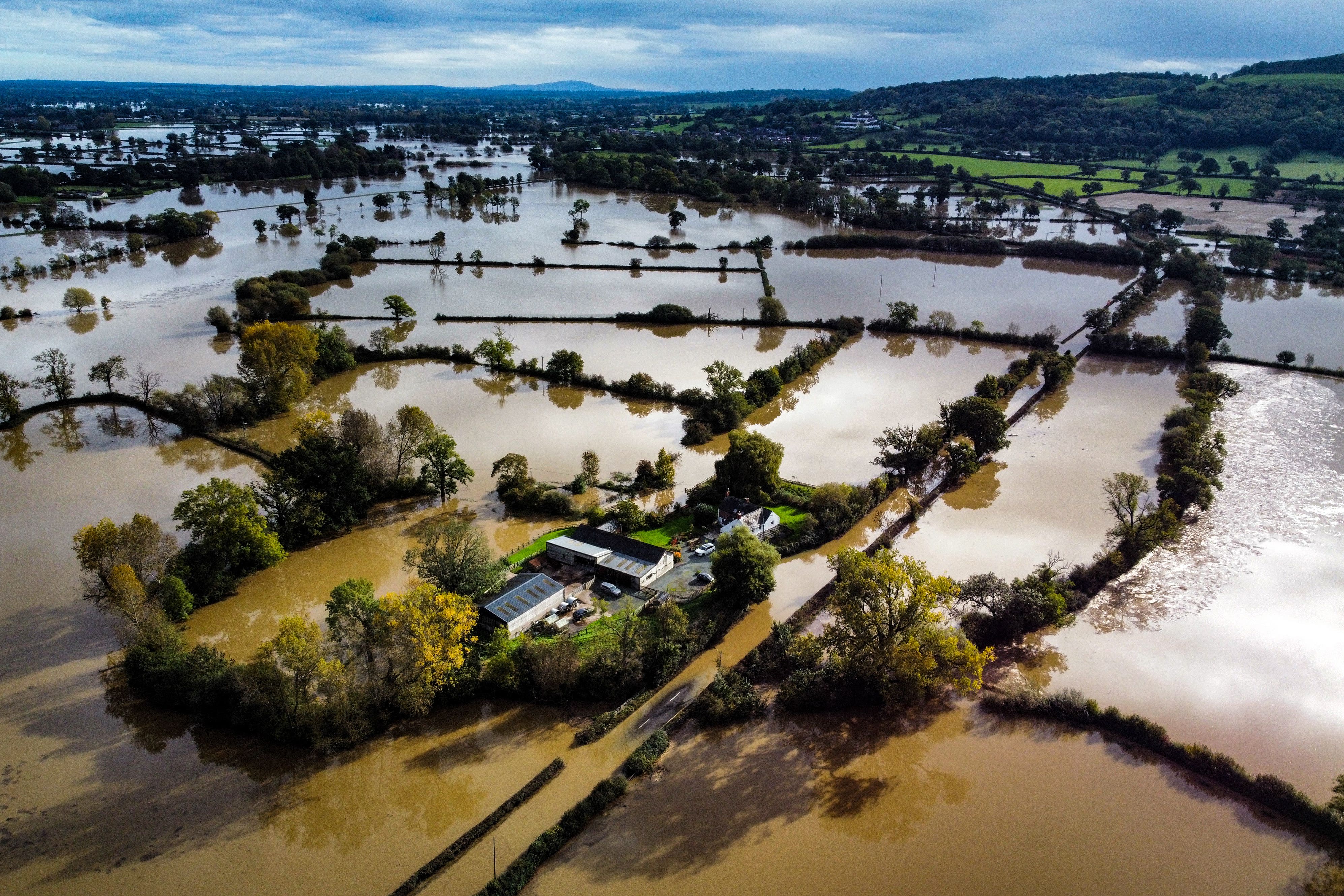Farmers ‘shouldering the burden’ of flooding, says CLA
The landowners’ body wants the Government to provide better compensation for when fields are inundated.

Your support helps us to tell the story
From reproductive rights to climate change to Big Tech, The Independent is on the ground when the story is developing. Whether it's investigating the financials of Elon Musk's pro-Trump PAC or producing our latest documentary, 'The A Word', which shines a light on the American women fighting for reproductive rights, we know how important it is to parse out the facts from the messaging.
At such a critical moment in US history, we need reporters on the ground. Your donation allows us to keep sending journalists to speak to both sides of the story.
The Independent is trusted by Americans across the entire political spectrum. And unlike many other quality news outlets, we choose not to lock Americans out of our reporting and analysis with paywalls. We believe quality journalism should be available to everyone, paid for by those who can afford it.
Your support makes all the difference.Farmers and rural communities are “unfairly shouldering the burden” of flooding because of “years of poor management” from the Environment Agency, the rural landowners’ body has said.
Storm Ciaran is the second storm in two weeks to cause flooding across the UK, with the Met Office having issued yellow warnings for rain stretching throughout the south of England, Wales, north-east England and Scotland.
There are also 77 flood warnings in place from the Environment Agency showing a risk to properties, many of which are along the south coast.
Years of poor management of watercourses and flood defences by the Environment Agency, often caused by lack of resources, mean farmers are still unfairly shouldering the burden of flooding devastation
The Country Land and Business Association (CLA) wants the Government to do more to support farmers and landowners and said their fields are being sacrificed to save houses and villages downstream.
Regional director Tim Bamford said: “Flooding can have a massive impact on farming and the countryside, with crops damaged and rural communities often cut off.
“Years of poor management of watercourses and flood defences by the Environment Agency, often caused by lack of resources, mean farmers are still unfairly shouldering the burden of flooding devastation.
“Landowners don’t receive compensation when the Environment Agency effectively floods their fields to protect downstream houses and villages, despite the harm to their crops and livelihoods.
“And when farmers do attempt to implement flood prevention techniques, they face lengthy authorisation delays and costs, creating a lose-lose situation.
“Farmers want to provide solutions to the climate crisis. But until the Government steps in to tackle planning delays and offer full and proper compensation to those storing floodwater, farmers will continue paying the price for problems they didn’t create.”
Worldwide, agriculture is a significant source of the greenhouse gases that are warming the atmosphere – around a fifth of the global total – and it is the largest contributing sector after energy.
As the Earth’s temperature rises, the frequency of storms and torrential downpours is increasing in the UK as a warmer atmosphere can hold more moisture, allowing a larger amount to build up in clouds.
Half of agriculture’s contribution to climate change comes from on-farm emissions of methane and nitrous oxide, with the other half coming from the destruction of forests and other land changes that would otherwise have absorbed carbon dioxide from the atmosphere, the Organisation for Economic Co-operation and Development (OECD) has said.
A spokesperson from the Department for Environment, Food and Rural Affairs said: “We’re conscious of the impact Storm Babet and Ciaran will have had on the farming community, and the important role to play in reducing the risk of flooding and coastal erosion as we adapt to climate change.
“Farmers are already eligible for support through the flood recovery framework announced last week, including a grant of up to £2,500 as part of the business recovery grant.
“Since 2015 we have also protected 580,000 acres of agricultural land along with thousands of businesses, communities and major infrastructure via our floods investment programmes.”
The CLA’s call for help follows an open letter from the National Farmers’ Union (NFU) after Storm Babet, saying the Government should ensure that farmers are adequately paid in compensation for when their fields are flooded.
They want changes to the flood defence grant so that “rural communities are not disadvantaged by the nature of smaller populations in comparison to urban communities”.
Wildlife experts and environmental groups have said that the impacts of flooding could be reduced if the UK was to restore its wetlands and woodlands, which slow the flow of water across the landscape.
Around 90% of the wetland habitats in England alone have been destroyed in the last 100 years, mainly through unsustainable farming, development and abstraction, according to the Wildlife Trusts.
An Environment Agency spokesperson said: “We are acutely aware of the impacts flooding can have on farmers and the agriculture sector, and our teams are working hard on the ground to help people recover from Storm Babet and the current impacts being felt by Storm Ciaran.
“Between April 2021 and April 2023 we have better protected around 148,000 hectares of agricultural land through our flooding investment programme.
“Working with farmers and landowners is also an important part of our flood and coastal erosion risk management strategy roadmap up to 2026, which is supported by a wide range of partners, including the NFU.”